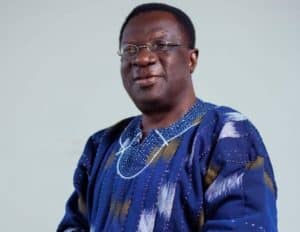Candidates for the Council of State elections, which are set for today, February 11, have submitted nominations, with 155 candidates from all 16 regions of Ghana.
Regional representatives who will advise President John Dramani Mahama on important national issues will be chosen by the eagerly awaited elections, which are an essential part of Ghana’s governance structure.
There is a notable gender gap in the race, with 145 men and 10 women on the list of candidates, according to the Electoral Commission (EC).
Even though there are still not many female candidates, their involvement is a step in the right direction for more women to be represented in national decision-making bodies.
The candidates met certain eligibility requirements set by the EC in order to be nominated, and they have successfully completed the process. Before the nomination deadline, they had to prove their Ghanaian citizenship, show that they were well-regarded in the community, and complete all administrative requirements.
The Council of State election is closed to the public, in contrast to the presidential and parliamentary elections. Rather, representatives from each district vote in the selection process, which is conducted under an Electoral College system.
Two representatives are chosen by each of Ghana’s 261 District Assemblies, creating a pool of electors who will vote to choose the final members of the Council of State.
These chosen electors are essential to maintaining a fair and democratic selection process because they are supposed to evaluate the candidates according to their qualifications, experience, and capacity to make a significant contribution to national governance.
The Council of State is a constitutionally mandated advisory body that provides guidance to the President on policy formulation and national governance.
Established under Article 89 of the 1992 Constitution, the Council serves as a key consultative body, offering expert advice on governance-related issues, national security, economic development, and other critical state affairs.






